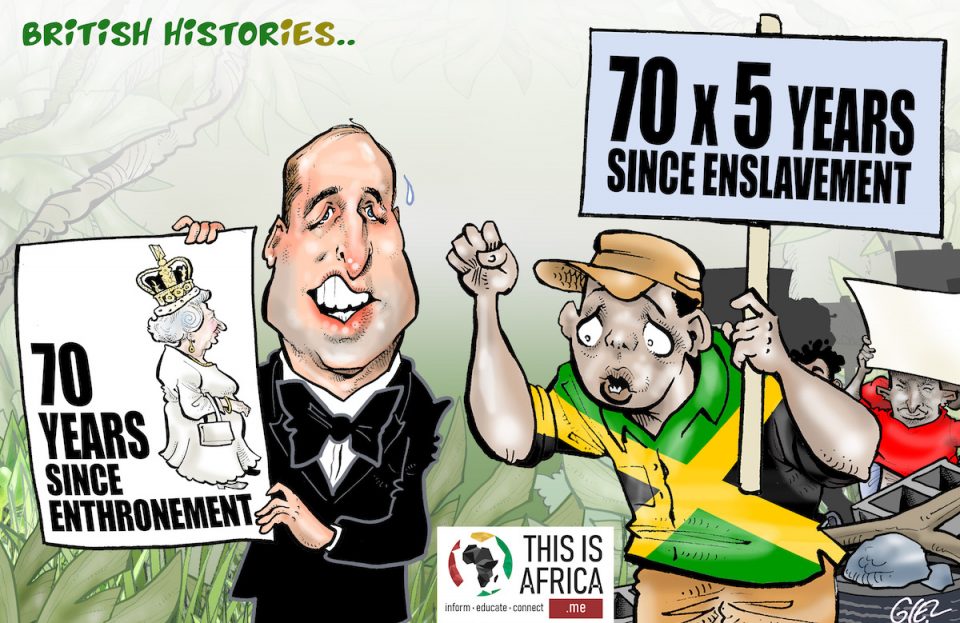By
Prince William and Kate’s recent tour was supposed to reposition the monarchy in the Caribbean. Instead, it has opened old and painful wounds about Britain’s role during transatlantic slave trade, raising new questions about reparations and the monarchy’s future.
Prince William and Kate Middleton’s recent trip to the Caribbean opened a can of worms. The trip was meant to commemorate Queen Elizabeth II’s Platinum Jubilee, celebrating 70 years on the throne. However, the trip opened old and painful wounds about Britain’s role during transatlantic slave trade.
Britain was the most dominant force during slave trade and was heavily involved between 1640 and 1807 when the British slave trade was eventually abolished.
It is estimated that Britain transported 3.1 million Africans (of whom 2.7 million arrived) to the British colonies in the Caribbean, North and South America and to other countries
Protests disrupted Prince William and Kate’s tour urging the monarchy to pay reparations for the slave trade.
Reports say the trip was meant to persuade the three countries (Belize, Jamaica and Bahamas) to keep the Queen as head of state, and not to follow Barbados, which transitioned to a republic last November. However, there are loud and persistent calls to cut formal ties with the Queen and campaigns for slavery reparations have ignited a reckoning with the region’s colonial past observers say.
Queen Elizabeth II is the monarch of the U.K. and 14 other countries, including Canada and Australia, known as the Commonwealth realms.
Republished from This is Africa

